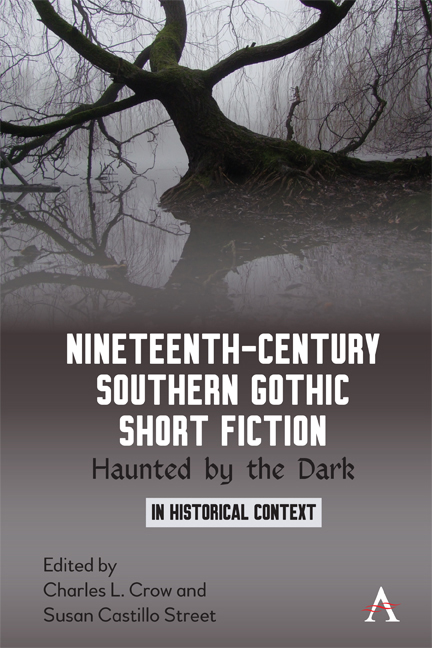Chapter Seven - Thomas Nelson Page, “No Haid Pawn” (1887)
Published online by Cambridge University Press: 20 January 2022
Summary
Thomas Nelson Page is usually remembered for stories like “Marse Chan” that place him in the “Plantation School” of Southern writing. But “No Haid Pawn” is something else entirely. Rather than nostalgia for an era of elegant mansions tended by faithful servants, Page shows the human cost of creating the white-columned great houses and acknowledges the brutality that could lead slaves to rebel or flee into the swamps.
“No Haid Pawn” gestures back toward Poe's “The Fall of the House of Usher,” as both the Usher mansion and the empty mansion of Page's tale disappear at the end into a marsh. Page also employs a familiar Gothic plot device, the character forced to spend a night in a haunted house. While the ghosts that seem to menace the narrator may be rationally explained, far deeper horrors of the history of the house are revealed.
Text: In Ole Virginia (New York: Scribners, 1895).
NO HAID PAWN
It was a ghostly place in broad daylight, if the glimmer that stole in through the dense forest that surrounded it when the sun was directly overhead deserved this delusive name. At any other time it was—why, we were afraid even to talk about it! and as to venturing within its gloomy borders, it was currently believed among us that to do so was to bring upon the intruder certain death. I knew every foot of ground, wet and dry, within five miles of my father's house, except this plantation, for I had hunted by day and night every field, forest, and marsh within that radius; but the swamp and “ma’shes” that surrounded this place I had never invaded. The boldest hunter on the plantation would call off his dogs and go home if they struck a trail that crossed the sobby boundary-line of “No Haid Pawn.”
“Jack ‘my lanterns” and “evil sperits” only infested those woods, and the earnest advice of those whom we children acknowledged to know most about them was, “Don’t you never go nigh dyah honey; hit's de evil-speritest place in dis wull.”
- Type
- Chapter
- Information
- Nineteenth-Century Southern Gothic Short FictionHaunted by the Dark, pp. 71 - 82Publisher: Anthem PressPrint publication year: 2020

